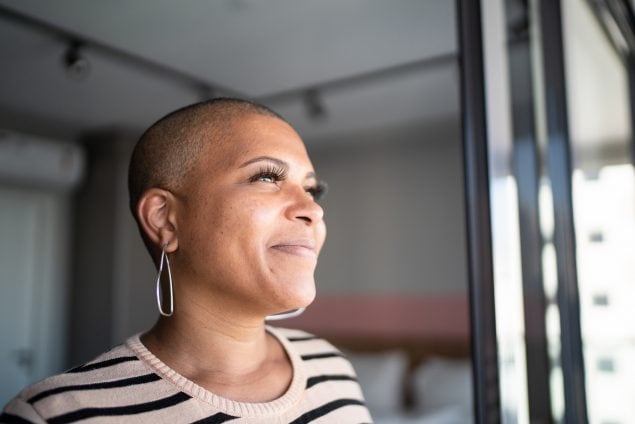Prioritizing Minority Mental Health
June 27, 2023
CDC observes National Minority Mental Health Awareness Month each July. This observance raises awareness of the challenges that affect the mental health of racial and ethnic minority groups. Learn more about mental health and find ways to support mental health equity.

Mental health is important to our overall health.
Mental health matters! Mental health includes our emotional, psychological, and social well-being. It affects how we think, feel, act, handle stress, relate to others, and make choices. Mental health is just as important as physical health throughout our lives.
Mental health issues are common – more than 1 in 5 US adults live with a mental illness.1 Mental health issues are treatable and often preventable, but not everyone has access to the resources they need. People in some racial and ethnic minority groups face more challenges than others getting mental health care.

Therapy can play an important role in supporting mental health.
Many people from racial and ethnic minority groups have difficulty getting mental health care.2 This can be due to many different reasons, such as cost or not having adequate health insurance coverage.2,3,4 It may also be challenging to find providers from one’s racial or ethnic group..4 Stigma or negative ideas about mental health care may also prevent people from seeking services.4
Other things in our environment can impact mental health and emotional well-being. For example, experiencing or witnessing racial discrimination or racial violence5 can cause stress and racial trauma. Poverty (or having low income) may limit access to mental health care. Poverty can also cause stress and may lead to mental health issues.6
Everyone benefits when people from racial and ethnic minority groups can thrive. We all have a role to play in promoting health equity.
Individuals can
- Learn about mental health.
- Learn about healthy ways to cope with stress and respond to loss. Engage in these practices, when possible.
- Share information on mental health, healthy coping skills, and resources with family, friends, neighbors, and others in your community.
- Talk about mental health and use non-stigmatizing language.
- Learn about implicit bias. Implicit biases are unintentional attitudes, behaviors, and actions that are in favor of or against one person or group.
- Learn about microaggressions. Microaggressions are everyday verbal, nonverbal, and environmental slights, snubs, or insults. They communicate negative messages to people because of their membership in a marginalized group. Microaggressions can be intentional or unintentional.
- Make ongoing efforts to avoid implicit bias, microaggressions, and other forms of discrimination.
- If you need more support:
-
- Access free and confidential resources including the 988 Suicide & Crisis Lifeline.
- Get treatment from a mental health care provider.
Public health organizations can
- Ensure mental health programming incorporates perspectives, ideas, and decision-making from people from racial and ethnic minority groups at all stages of programming – from planning to evaluation.
- Consider the data on mental health, as well as historical, social, and cultural factors impacting racial and ethnic minority groups, when developing organizational priorities and programs.
- Prioritize action on and/or account for structural and social determinants of health when designing mental health programs.
- Partner with other organizations to fill gaps in expertise and representation from racial and ethnic minority groups.
- Monitor and evaluate mental health programs for progress towards health equity and elimination of racial disparities.
- Incorporate and develop best practices for reducing racism in programs and policies to improve mental health equity.
Health educators and communicators can:

We all have a role to play in mental health equity.
- Ensure mental health educational materials and communication activities are culturally and linguistically appropriate, inclusive, and respectful. Follow the health equity principles for communication, such as using plain language.
- Take active steps to increase the reach of mental health information to racial and ethnic minority groups. This should include using culturally responsive communication outlets.
- Verify and promote free and low-cost mental health resources through diverse channels.
Healthcare systems can
- Screen patients for depression and other mental health conditions and refer patients to accessible mental health care services.
- Make mental health educational materials available to all patients during their appointments, via patient portals, and in waiting rooms.
- Make efforts to recruit mental healthcare providers that reflect the race and ethnicity of the populations served.
- Provide cultural humility training to mental healthcare providers.
- Ensure mental healthcare services are culturally and linguistically appropriate.
States and communities can
- Expand community-based mental health care, including culturally responsive mental health services at low or no cost for youth and adults.
- Evaluate policies for their differential impact on social determinants of health. When needed, modify these policies or create new policies that ensure equitable access to resources for all people.
- Evaluate policies for their potential to reinforce mental health stigma and revise or remove stigmatizing policies.
- Encourage community and faith-based leaders to discuss mental health issues to help reduce stigma.
- Make efforts to ensure decision-makers reflect the races and ethnicities of the populations they serve.
CDC is collaborating with partners to improve mental health among racial and ethnic minority groups by
- Developing and sharing culturally responsive resources to promote and strengthen the emotional well-being of populations. Visit the How Right Now health communications campaign.
- Gathering data on mental health, access to care, demographics, and more.
- Declaring racism a serious threat to the public’s health and taking actions to address racism.
- Carrying out CORE, an agency-wide action plan that aims to to strengthen health equity across the nation, and improve diversity, equity, inclusion, accessibility, and belonging within our workforce.
- Ensuring equity principles guide planning around mental health programming.
- Raising awareness of health workers’ mental health issues through the Health Worker Mental Health Initiative.
- Identifying policies and practices that connect children and families to mental health care. Visit Improving Access to Children’s Mental Health Care.
- Developing data systems and tools that reach marginalized populations during crises. Visit Project REFOCUS, a CDC collaboration with Howard University, UCLA, and CDC Foundation.
CDC’s Office of Health Equity recognizes National Minority Mental Health Month as part of our anniversary. We’re celebrating 35 years of “baking” health equity into our public health work. “Baking in” health equity means that health equity is a foundational ingredient in our work.
- 988 Suicide and Crisis Lifeline
- BIPOC Mental Health Month Toolkit – Mental Health America
- Suicide Prevention
- Depression is Not a Normal Part of Growing Older
- Depression Among Women
- Mental Health in the Workplace
- The Mental Health of People with Disabilities
- National Minority Mental Health Awareness Month
- What is Mental Health?
- Mental Health and Mental Disorders – Healthy People 2030
- About the Office of Behavioral Health Equity